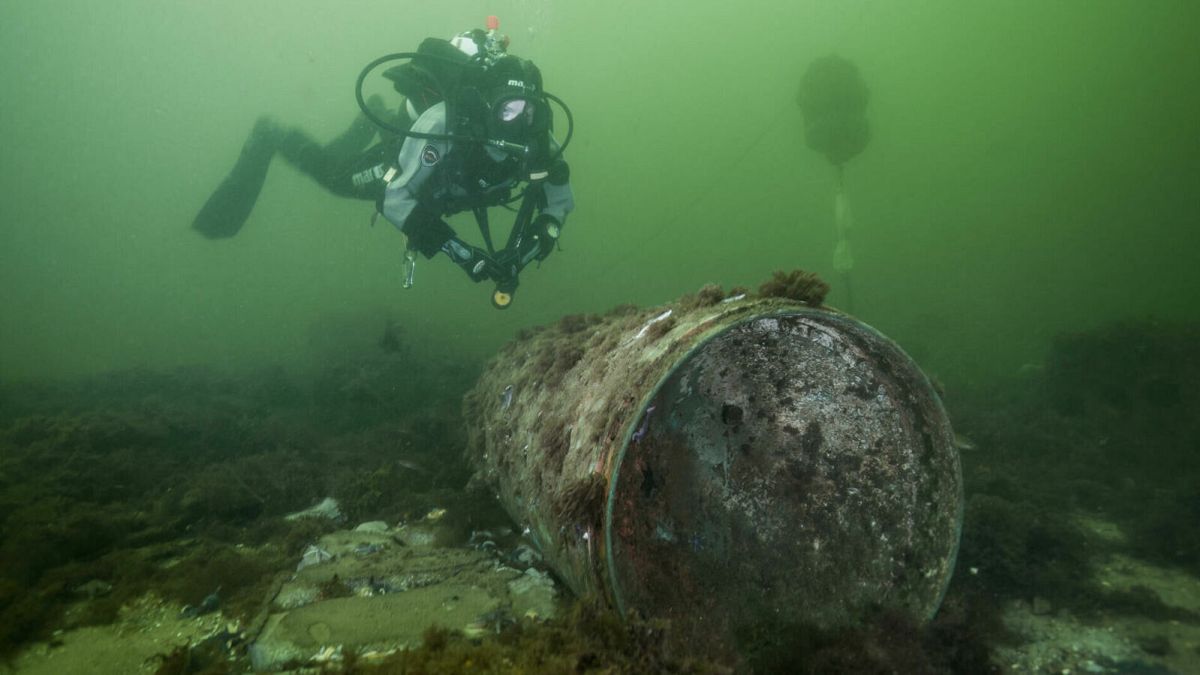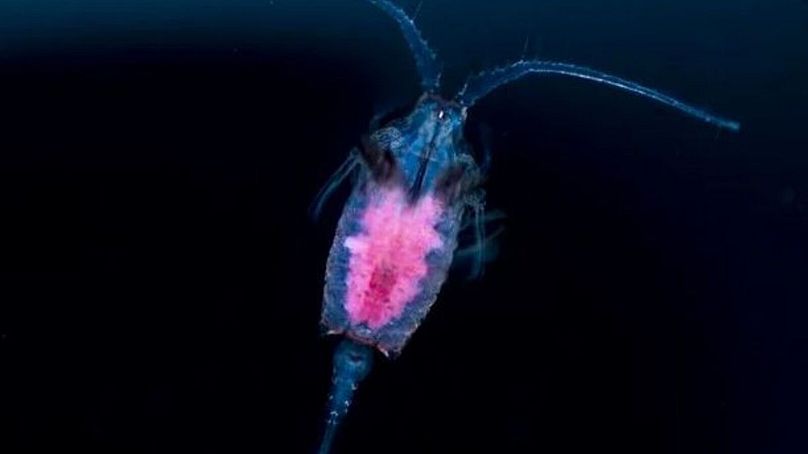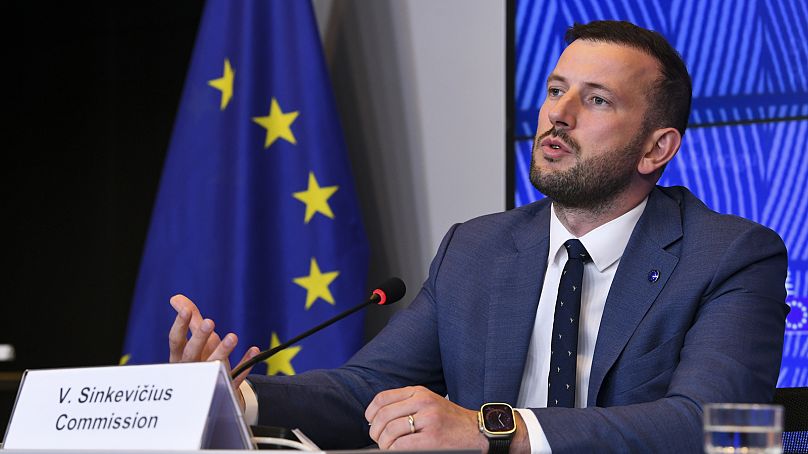A staggering 300,000 tonnes of deadly wartime weapons lie scattered on the Baltic seabed.
The Baltic, a strategic waterway connecting major European nations, is now one of the most polluted bodies of water on Earth as unexploded grenades, bombs, missiles and chemical agents were hastily abandoned in the ocean following the two world wars.
Sea dumping was then considered a swift, safe and cheap solution to get rid of unwanted munitions with many dumped by the Allied forces in 1945 as they feared a guerrilla uprising in post-Nazi Germany.
For a century, these weapons have been festering at the bottom of the Baltic ocean, slowly leaking toxic chemicals including TNT, mustard gas, phosgene and arsenic.
As EU environment commissioner Virginijus Sinkevičius meets ministers from the Baltic states in Lithuania on Friday to discuss solutions, experts tell Euronews that the problem has been ignored for too long.
An ecological disaster
Chemicals released from undersea munitions change the acidity and temperature of the seawater, destabilising ecosystems. They also cause cancer in many species, and remnants of munitions have even been found in fish tissue.
Experts fear consuming fish caught close to dumping sites could lead to a build-up of carcinogens in humans.
Terrance Long, Founder of the International Dialogues on Underwater Munitions, told Euronews that more public awareness is needed to pressure governments into action.
"Underwater munitions are leaking toxins that are harming marine ecosystems and endangering our sea life. Whether you're a staunch climate change advocate or not, this issue affects us all," Long told Euronews
"The TNT in munitions can burn and bleach corals and create an influx of nutrients that provoke harmful algae blooms. Mustard gas breaks down into inorganic arsenic which spreads across the seafloor, killing everything in its wake. The chemicals also affect the photosynthesis of plankton and the hatching rate of crustacean eggs," he explained.
“That’s the situation in the Baltic today. We cannot save the seas unless we accept the realities in the water," he added.
Even though scientists have for decades provided evidence to back such concerns, politicians have been dragging their feet, given the difficulty in defining legal liabilities for the forgotten weapons.
And while the public is acutely aware of the dangers of plastic and microplastic pollution in our oceans, little is known about the dangers of dumped munition for animal and human safety.
Politicians “need to prioritise”
Industrial activities that risk interfering with munitions such as dredging, offshore wind farms and bottom trawl fishing, as well as fears weapons could be retrieved by criminals, have brought the problem to political attention.
Earlier this year, Germany announced a €100 million programme to pilot ammunition recovery and destruction.
The collapse of fish stocks in the Baltic - provoked by a toxic cocktail of munition chemicals, fertilisers, industrial waste and sewage - has also severely impacted the fishing industry and placed pressure on governments to act. In August, the European Commission imposed new catch limits for two fish species in the Baltic.
"If we compare behaviours and statements from governments, there is remarkable difference. But above all there is a low level of action," Claus Böttcher, an independent consultant for JPI Oceans, told Euronews.
Terrance Long also feels that states’ failure to include any reference to undersea munitions in the Chemical Weapons Convention shows governments are trying to shrug off responsibility.
"Treaties often demand compromises that can dilute the treaty's effectiveness, particularly when it comes to safeguarding the environment," he explained. "Governments might be protected by treaties, but that doesn't absolve them of the consequences of their actions."
Technological solutions exist
But Böttcher believes there has been positive momentum in the past decade to achieve the paradigm change needed.
Engineers, scientists, policymakers and financiers are finally coming together to identify the best ways of safely destroying the weapons.
Advancements in marine technology, including the use of artificial intelligence, are making detecting and mapping undersea munitions easier. Some munitions are disarmed using water jets before they are removed from the seabed, while others are recovered to be detonated or incinerated on land.
"We've developed technology that prove a clean-up of the ocean floor is possible. Munitions are visible and tangible and can be removed," Böttcher said.
Both experts say conventional and chemical weapons need to be treated with the same level of priority. Weapons also need to be monitored more closely, as some carry a minimal explosive risk due to the unstable condition of the chemicals they contain.
These technological solutions could also be vital for a clean-up of the Black Sea when the war in Ukraine eventually draws to an end. Although little is known about munition dumping in the region, experts say governments must learn from the mistakes of the past to avoid a disastrous repeat.
Experts welcome potential EU action, but call for a coordinated global response to a problem that touches so many parts of the planet.
"Baltic Sea ministers should seriously consider calling on the United Nations to convene an International Conference on Underwater Munitions," Long said.
"The Baltic Sea is part of what I call the heart and lungs of the planet," he added. "As the earth is all one body, if our heart and lungs are sick, it affects us all."


